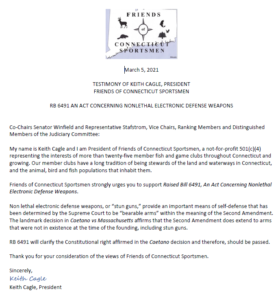Giving testimony – whether oral or written – is one of the most effective ways to educate legislators and policymakers about the impact that proposed legislation might have. Legislators and other policymakers aren’t always aware of all the implications a particular piece of legislation may have on their constituents. If they don’t hear from concerned citizens, they will not know so it’s important that your voice is heard!
This page provides tips on how to write your testimony, as well as how to give it.
Tips on Writing Testimony
Written testimony should be no longer than one page and limited to one bill or issue. Always be polite and positive and do not attack or threaten a government official.
| Header |
|
| Salutation |
|
| 1st Paragraph |
|
| 2nd Paragraph |
|
| 3rd Paragraph |
|
| Final Paragraph |
|
Samples
Here are a couple of samples you can use as a guide when writing your own testimonial letter.
1. Basic Letter – basic letter to oppose a bill in Microsoft Word format. You can customize to fit you, sign and then mail or email to your legislators.
2. Below is sample testimony provided by Friends of Connecticut Sportsmen. You can view this Sample Testimony as a PDF to use as a guide for writing your own testimony for a bill that you want to support or oppose.
Tips on Giving Testimony at the State Capital During Covid-19
Covid-19 has changed how testimony is given. The Capital is closed so testimony cannot be given in person. Instead, testimony can be given by phone, email (and sometimes mail) or by video call (Zoom). Visit https://www.cga.ct.gov/asp/Content/YourVoice.asp for helpful tips on how to give testimony during Covid-19.
- To find out when public hearings will be held, view the calendar on the homepage of the Connecticut General Assembly (CGA) website at cga.ct.gov. You can also view agendas for upcoming hearings by visiting the Committee pages on cga.ct.gov. Finally, you can also refer to The CGA Bulletin which provides a listing of upcoming committee meetings, public hearings and events. The Bulletin will include details on each committee’s public hearing – date, links to view/join, and requirements for providing testimony. Be sure to read this carefully and take note of any deadlines.NOTE: Most virtual hearings will require you to pre-register, or submit written testimony, by a deadline. Please read the bulletin & agenda carefully.
- If you are asked to fill out a form to pre-register, please fill it out accurately & completely. If the committee clerk cannot positively identify you in the virtual hearing, you will be excluded from testifying. Please make sure your name, telephone number, and email address are correct.
- When you are called, you may begin with “Madam Chair, Mr. Chairman” (as appropriate) “and members of the committee.” Introduce yourself very distinctly so the transcriber can understand, and mention your town and the number and title of the bill you’ll be speaking on.
- Indicate right away whether you support the bill, oppose it, or are offering suggestions to improve it. Then explain your reasoning.
- Keep your remarks short; generally, 3 minutes is usually enough, but be sure not to exceed any announced time limits. If other speakers have already made your point, you can say that you agree with, or want to associate yourself with the remarks of one or more previous speakers. Your views and your name will then be clearly on record.
- When you finish, remain attentive for a moment, in case committee members want to ask questions. You will be dismissed by the committee clerk or co-chair and you are then removed from the hearing and may continue to watch on CT-N or YouTube Live.

